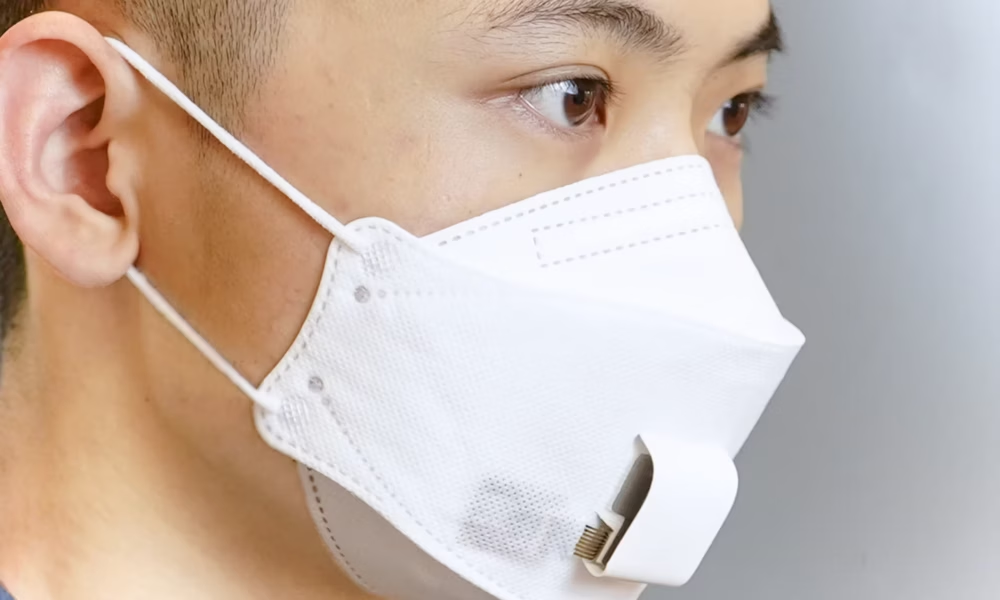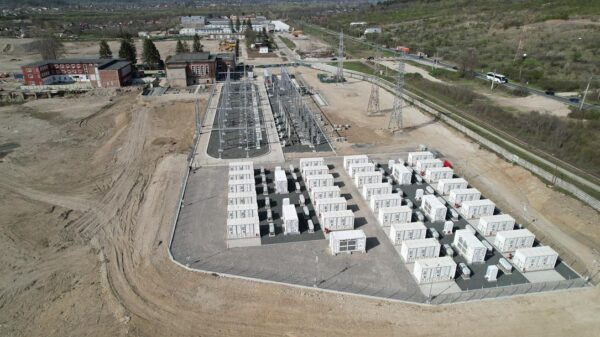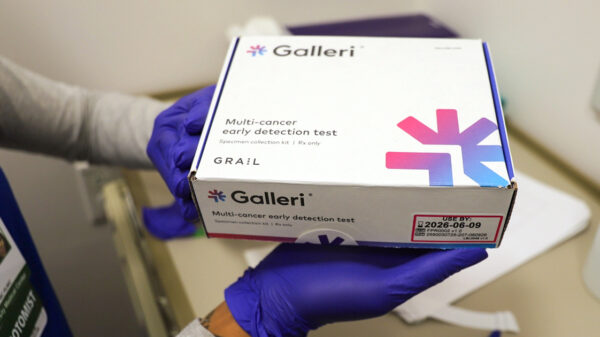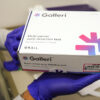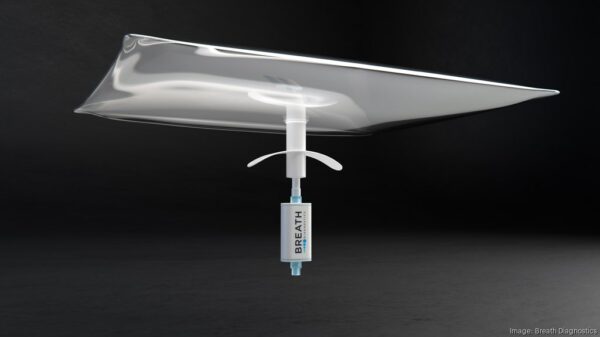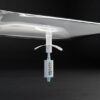Facemasks and other face coverings may be able to identity health issues through breath analysis.
Professor Corrado Di Natale and his research team from the University of Rome said last Wednesday were successful in integrated special breathing sensors into the mask fabric. This device detects metabolic products related to chronic kidney disease, as originally published in the international journal ‘ACS Sensors.’
Masks that block viruses are evolving into smart sensors and electronic noses that detect disease symptoms inside the body. Although still in the proof-of-concept stage, this technology shows accuracy comparable to hospital tests. Developers expect it will support earlier diagnosis and better disease management.
Additionally, researchers are working to bring this technology to market. Breath tests may soon become a routine part of disease detection, alongside imaging and blood work. These smart masks could help identify illness faster and more easily.
Also, using breath analysis may reduce the need for invasive testing in some cases. The shift toward wearable diagnostic tools marks a major step forward in medical innovation.
Chronic kidney disease is a long-term illness that reduces or damages kidney function for over three months. The kidneys filter waste from the blood and remove it through urine.
For example, the liver breaks down proteins and produces urea as a byproduct. The kidneys then filter urea from the blood and excrete it in urine. Furthermore, when kidney function declines, the body fails to clear urea efficiently. As a result, urea builds up in saliva.
In addition, this buildup increases ammonia in exhaled breath, since ammonia forms when urea breaks down.
Read more: Breath Diagnostics gives the public the chance to join the fight against cancer
Read more: Breath Diagnostics now offering a compelling investment opportunity
Research team tested mask on 100 participants
The research team coated silver electrodes with conductive polymer materials. They enhanced sensitivity by attaching porphyrin, which reacts to volatile compounds.
They placed the electrodes between layers of medical mask material and connected them to an external reader using wires. When specific gases contacted the polymer, the electric resistance changed.
Further, the team ran initial tests in open air to assess performance.
Additionally, the sensor successfully detected chronic kidney disease metabolites, including ammonia, ethanol, propanol, and acetone.
The research team tested the mask on 100 participants. Half of them had a diagnosis of chronic kidney disease.
The mask sensor identified patients with the disease with a sensitivity of 84 per cent. It also showed 88 per cent specificity in individuals without the disease. Further, the sensor detection data allowed researchers to estimate the stage of the disease.
Additionally, the results suggest the mask could support both diagnosis and disease monitoring. The U.S. Centers for Disease Control and Prevention (CDC) estimates that 35 million people in the country have chronic kidney disease.
Doctors believe the actual number is higher, since many patients remain unaware during the early stages. Currently, hospitals diagnose chronic kidney disease using blood and urine tests.
Further, the research team explained that sensor-equipped masks could help identify more patients earlier and more easily. Additionally, these masks could support efforts to evaluate how well treatments work over time.
Read more: Breath Diagnostics pioneers novel lung cancer breath test
Read more: Breath Diagnostics takes aim at lung cancer with One Breath
Chemical sensors effective at liquid detection
The University of Rome isn’t the only institution using the breath to help detect diseases.
The California Institute of Technology (Caltech) announced a smart mask in August last year. This mask helps manage respiratory diseases like asthma, chronic obstructive pulmonary disease (COPD), and chronic kidney disease.
The mask analyzes chemical substances in exhalation in real-time. It also detects nitrite levels, which indicate airway inflammation in asthma patients. In addition, the mask helps manage ammonia levels in patients with chronic kidney disease.
Chemical sensors are more effective at detecting liquids. To address this, the research team cooled volatile chemicals in exhalation into liquids.
Due to space limitations in the mask, they couldn’t add a separate cooler. Instead, they used hydrogel, a moisture-rich, soft material, to absorb heat and cool the exhaled components. Once the exhalation components became liquid, capillaries transported them to the sensor, similar to how plant roots absorb water.
In addition, the research team found that the smart mask can also detect pathogens in aerosol form.
Several private sector companies are exploring alternative disease detection technologies. Grail Inc (NASDAQ: GRAL), a biotechnology company, has developed multi-cancer early detection tests using blood samples.
Their research aims to identify multiple cancers at earlier stages, providing better treatment outcomes.
Similarly, Breath Diagnostics has introduced OneBreath, a device that analyzes exhaled breath for signs of various diseases. OneBreath uses advanced sensor technology to detect biomarkers associated with respiratory conditions, chronic diseases, and even cancer.
This technology holds significant promise for non-invasive, cost-effective, and rapid diagnostics. Both companies are at the forefront of developing tools that could transform how healthcare professionals monitor and detect diseases, paving the way for earlier intervention and improved patient care.
.

